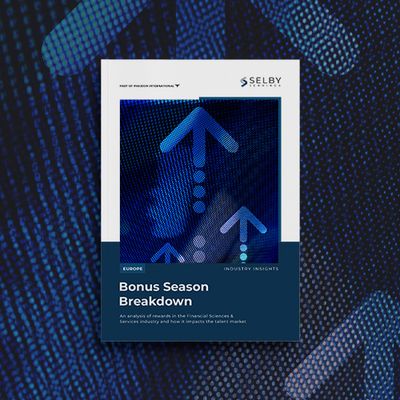private-wealth-management
How to Make the Perfect Job Offer
Finding the perfect candidate for your latest role can be a long and arduous road. Once you have found the employee with the skills you need and an attitude which will fit perfectly within your team, it is time to make your job offer. In a perfect world, you will get an enthusiastic acceptance. However, if you are hiring in a busy sector, or trying it, is likely you may have to negotiate salary and other benefits before you can seal the deal.Competition for talent is fierce. The pressure is on for hiring managers to secure the right candidate by offering an attractive compensation package before they accept an offer from a competitor. The aim of a salary negotiation is not to find a compromise where both parties are dissatisfied but find a balance where you both come out feeling valued, and enthusiastic about moving forward. Negotiating salary can be a tricky business that requires a high level of strategy.Set your limits before you advertise the jobSalary negotiations can be complicated - planning will give you an obvious advantage. Before you even start interviewing your candidates, you need to choose the right salary to advertise, including the upper limit to where you are willing to negotiate for an exceptional candidate.Your lowest salary offer should still be in line with industry standards, with your upper limit reserved for excellent candidates who will offer extra value to the role. Don’t include your upper salary limit in any of your job advertising or recruitment efforts. There are several elements to consider when deciding on monetary compensation, including:The seniority of the position on offer– how many people will they be managing? Will they be heading up important projects?The current labor market– will this be a difficult or easy position to fill?The current performance of your company– how much can you afford to pay a new candidate?The skills required for the job – are they rare? Do you need a specific combination of hard and soft skills?The salaries of others in the company– is the upper limit offered still within the bracket you have set for others at this level?Your location– are you based in an expensive city or area where more compensation is needed to make up for elevated living costs?The best way to avoid negotiation is to ensure your initial offer is attractive and fair compared to benchmarks within your industry. Use online tools such as PayScale and Glassdoor to look at salary benchmarks for similar roles within your sector. Remember that it is likely your candidate will also be using these tools to make their own comparisons.It is also vital to keep within existing pay levels within your company. Going above these may help you secure a candidate but can lead to issues further down the line where other team members may feel undervalued and demoralized.Find out your candidate’s current salaryThe candidate you are interviewing is under no obligation to tell you their current salary, but there is no harm in asking politely. This information is important when it comes to negotiating a salary. If their current salary is higher than your upper negotiating position, then it is time to question if they are the right candidate for you. This is best done early in the interviewing process. You can ask a candidate their desired salary in the interview to prepare for later negotiations and speed up the process. This allows you to root out candidates who are holding unrealistic salary expectations.Make a fair initial offerIf you want to avoid a lengthy negotiation period, make sure your initial salary offer is a fair one. Though it is not an official rule, it is a given that most professionals will be expecting at least a 20% pay rise when seeking a new position, particularly with the cost of living increasing. However attractive the position is and however great the benefits your company provides are, salary is still the main motivating factor for taking a role - you need to offer a fair package to a skilled candidate which remains within your company guidelines. Your offer needs to be a fair reflection of the candidate’s experience and skills.Lowballing your candidate in anticipation of a counteroffer will only lead to your candidate regarding your company with suspicion, and you may gain a reputation as a timewaster. Salary negotiations should not be treated the same way as trying to sell a used car. Consider the long-term impact of the hire during your negotiations. Making a fair offer will help bring more value to your company in the long run through the work of an employee who knows that they are respected and valued.Conversely, offering a very high number to your candidate can come across as desperate and make your candidate second guess their decision to take up the offer. Your candidate will be aware of the value of their current skill-set, and a high overvaluation can lead to further suspicion and hesitation from the employee. Finally, ensure your initial offer is lower than your upper range, which should have been decided before the job was advertised, to leave room for negotiation.Highlight benefits beyond salaryIf you are aware of competitors in your market who can provide bigger salary packages than you, consider the benefits of working for your company beyond the wage. Depending on your candidate, some of these benefits can be very attractive in helping improve the employee’s quality of life. If you are unable to completely match a salary request during a negotiation, there are other benefits you can offer that may entice a new employee to join. These could include:Additional or unlimited annual leave– a generous holiday offer, including the recent trend amongst start-ups to provide unlimited leave, shows a level of trust and value.Flexible working– Allowing employees to work from home one day a week or schedule their work around their lives using a flexi-time structure is particularly attractive to those with children.Professional development– If there are opportunities for the candidate to take on additional training, learn new skills or start a new progressive career track, there is more long-term value in taking the role offered.A positive company culture– If the candidate is coming from a toxic or high-pressured atmosphere where they experienced burn-out, it may be an important and attractive prospect to work in an office with a supportive and positive atmosphere. Statistics such as staff retention rates and testimonials from other employees can help support the representation of your culture.Perks- such as free gym membership, funding for travel into work, subsidized lunches, attractive office facilities, and social opportunities.These can all be compelling reasons for your ideal candidate to choose your role, even if the salary isn’t what they expected. These benefits can help employees save money, cut down on stress, and enjoy their role. This provides compensation which focuses on quality of life - which can be very appealing during negotiations.Offer alternative monetary benefitsIf you are facing troubles in salary negotiations and it looks like you may lose the candidate who will bring the most value to your company, it is worth considering offering additional monetary benefits. These can include:Performance-related bonuses– agree to pay a bonus if certain targets and milestones are hit.Commission– some roles can benefit from a commission rewards system, where the employee is compensated for business and leads generated for your company.A signing bonus– a one-off signing bonus rather than a higher salary bracket is often a great way of satisfying both parties. It shows enthusiasm for wanting to onboard the candidate quickly while saving your company on payroll in the long term.A later salary negotiation– if you are unsure about offering a higher salary bracket now, you can promise another negotiation over salary after a probation period, on completion of a training course or if a performance target is hit. It is vital that you do follow up on this promise, as you do not want to lose the trust of your new staff member.Shares or profit-sharing– get your candidate invested in the success of your company by offering shares as part of the job offer.The importance of feedbackProvide succinct feedbackYour feedback is the most important part of your communication with a rejected applicant. Good interview feedback needs to be succinct, considerate and honest. It is often the case that there was nothing particularly wrong with the candidate, but there just happened to be another candidate with more relevant experience or stronger skills. Stating this to a candidate should not offend their feelings—it’s the reality of job hunting in a busy and high-quality labour market. You don’t want to provide a lengthy critique which kicks your applicant when they’re down, but providing constructive and specific feedback will also be useful for your candidate.Request and value feedbackAnother way to show respect to a candidate and gain a brand advocate is to ask for feedback on your interviewing and hiring process. You have given your honest and succinct feedback, respect that hiring is a two-way street and request some feedback on their experience. You can do this either in your phone and email correspondence, or set up a feedback survey to collect data from several rejected candidates. Requesting feedback shows you value and trust the opinions and viewpoints of the candidate, alongside providing you as a hiring manager with useful insights on how you can further optimize and structure your recruitment and candidate search process.Be honest about future opportunitiesIn some cases, you may be rejecting a candidate you have a genuine interest in hiring in the future. Maybe they weren’t quite the right fit for the current role, but they may slot into your future growth plans. If this is the case, tell them. However, do not finish a job rejection on a false promise if you know you have no interest in hiring the candidate now or in the future. Only invite a candidate to apply for future roles if you think they would be a good cultural fit in your company in the future. Inform them if their details will be kept on file within your company for future positions.Gaining a brand advocate in a rejected candidateEnding a job rejection on a positive note is no mean feat, but it is the first step in nurturing and maintaining a good relationship with the candidate and gaining a brand advocate. You want to keep qualified candidates of exceptional quality active within your talent pool, and maintaining positive communication with a rejected candidate may save you on hiring times and costs at a future date. Stay in touch with rejected candidates, either via email or professional social media such as LinkedIn. Follow up on their progress, and congratulate them when you spot they have landed a new job.You can keep up communication through inviting rejected candidates to events or seminars hosted by your company, a networking opportunity for both you and your candidate. You can also ask to add the candidate to your email newsletter database, or suggest they follow your company on social media so they can stay informed on hiring and growth. Treat candidates as you would like to be treated. Keeping up positive, timely, succinct and direct communication will gain you a brand advocate and a new addition to your passive talent pool.These guidelines can help to negotiate and extend the perfect job offer that's impossible to refuse. Once the offer is made, this isn't the end of the process -the ball still remains in the candidate's court. As a talent specialist with a well-garnered candidate portfolio, we are a one-stop solution for all your talent needs. Contact us today and we can help in the job offer process.View and download your free printable version below
Read More











